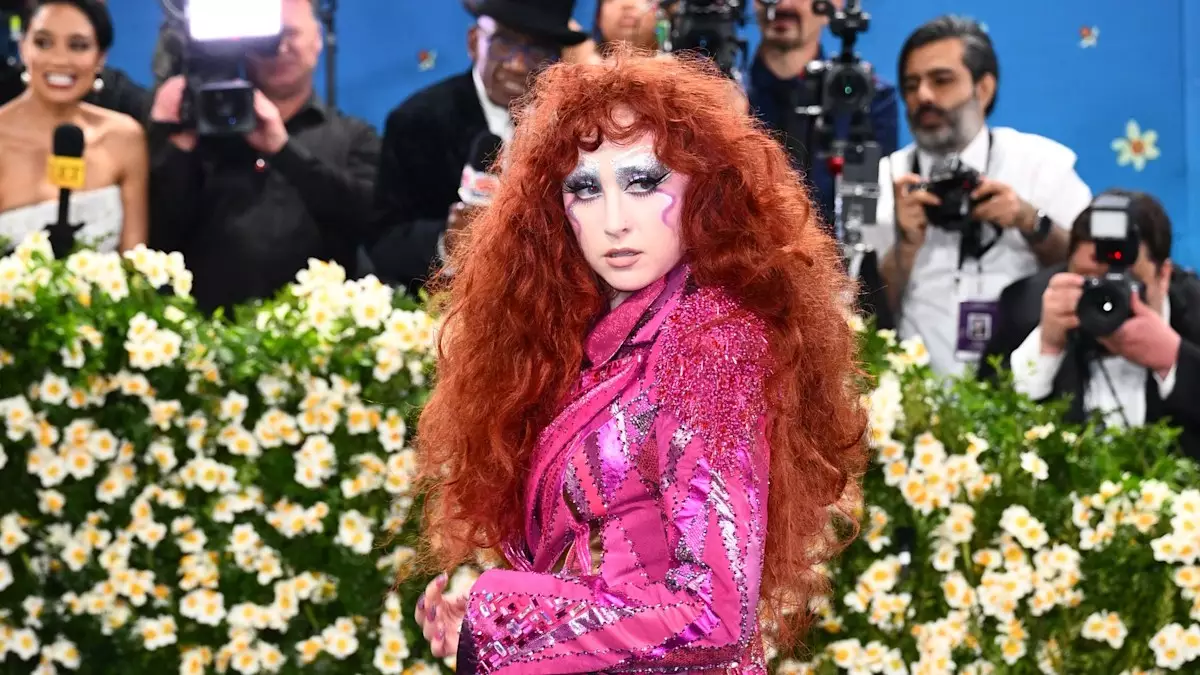Chappell Roan, a name that has quickly surged through the music scene, appears ready to confront the complexities that come with fame. Her raw declaration during the Outlaws podcast is not only striking but indicative of the pressures artists face today. “If I do not stand up for myself, I will quit,” she emphasized, hinting at a larger issue that lies beneath the glittering surface of the music industry. Her ascent—swift and meteoric—raises critical questions about the emotional and psychological burdens placed on artists. Chappell’s journey from an indie singer-songwriter to a prominent pop figure headlining major festivals is not merely a story of success but a cautionary tale of what happens when fame collides with personal integrity and boundary violations.
Chappell Roan’s transformative journey began in a small town in Missouri, where supportive high school teachers nurtured her musical ambitions. However, stepping into the limelight has illuminated a dark side that many artists encounter: the struggle for personal autonomy in an industry rife with invasion of privacy. As she gathered accolades, including a Grammy for Best New Artist, the demands of her career began to encroach upon her personal life, complicating her ability to maintain healthy boundaries.
The Price of Popularity
The intense scrutiny and sometimes predatory behavior from fans has deeply affected Chappell’s mental well-being. With her rising fame, her artistry has led her to declare her “villain era,” a term she coined to communicate her willingness to push back against the discomfort and disrespect she faces. This shift in persona isn’t just a gimmick; it’s a profound response to external pressures that threaten to diminish her identity and autonomy as an artist. Pop stardom, as Chappell points out, often comes hand-in-hand with invasive fan behavior and media scrutiny that can strip away personal dignity.
Her candid remarks about the objectification she faces reflect a wider issue impacting many creatives today. In an age defined by social media interaction, fans sometimes misconstrue their admiration for entitlement, crossing boundaries in ways that can be both disheartening and harmful. Chappell’s unapologetic advocacy for her right to consent and autonomy sets her apart; it showcases her commitment not only to her own well-being but also to creating a cultural shift that respects artists as individuals with feelings and rights.
Challenging the Status Quo
With increasing visibility comes an unwavering responsibility, and Chappell seems acutely aware of it. Her decisions—such as declining an invitation to a White House Pride event because of perceived governmental negligence towards queer rights—signal that she’s devoted not just to her music but to the well-being of her community. This persistence in advocating for collective safety and mental health suggests that Chappell understands the interconnectedness of artist activism and personal health.
Her recent work, such as the country-pop single “The Giver,” which highlights lesbian relationships, reflects her commitment to authenticity—an essential aspect of her artistry. However, artistry thrives in an environment where boundaries are respected. There is a tacit understanding that for Chappell to continue creating poignant and impactful work, she needs to cultivate a space where she feels safe and validated.
A Call for Cultural Change
As Chappell Roan continues to navigate her rise, it is clear that the resolution to her struggles will not only define her career but may also serve as a defining moment for the music industry as a whole. By standing firm against unwanted encroachments, she is calling for a larger cultural reevaluation of how we treat artists. It is a revolutionary statement that resonates broadly, encouraging others in the industry to reconsider their own boundaries.
Chappell is more than just a rising star; she is a symbol of resilience against the pervasive pressures that come with fame. As she declares her needs and boundaries, her narrative invites both fans and fellow artists to engage in a thoughtful dialogue about respect, consent, and the need for systemic change within the entertainment industry. In an era where personal and creative integrity is often overshadowed by commercial success, Chappell Roan’s journey is a powerful reminder of the importance of maintaining one’s identity amid the chaos of stardom.

